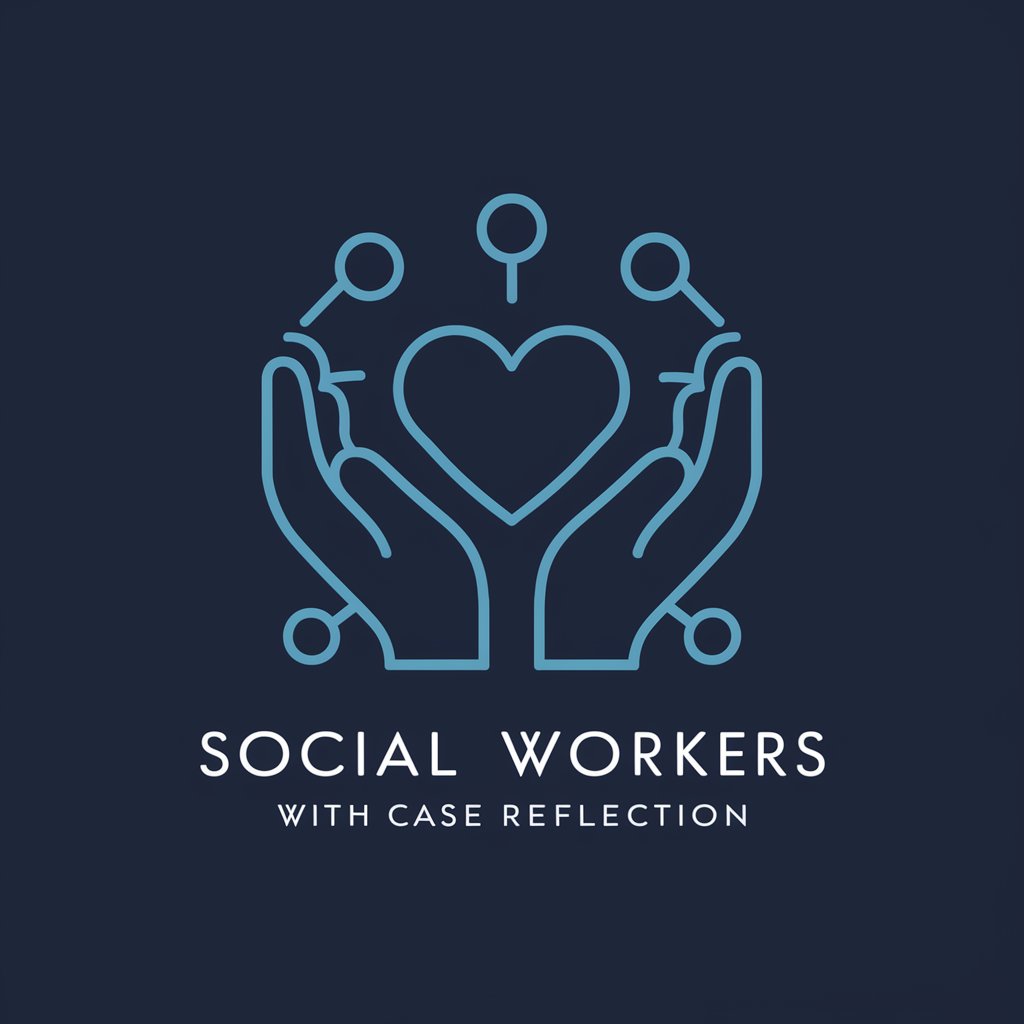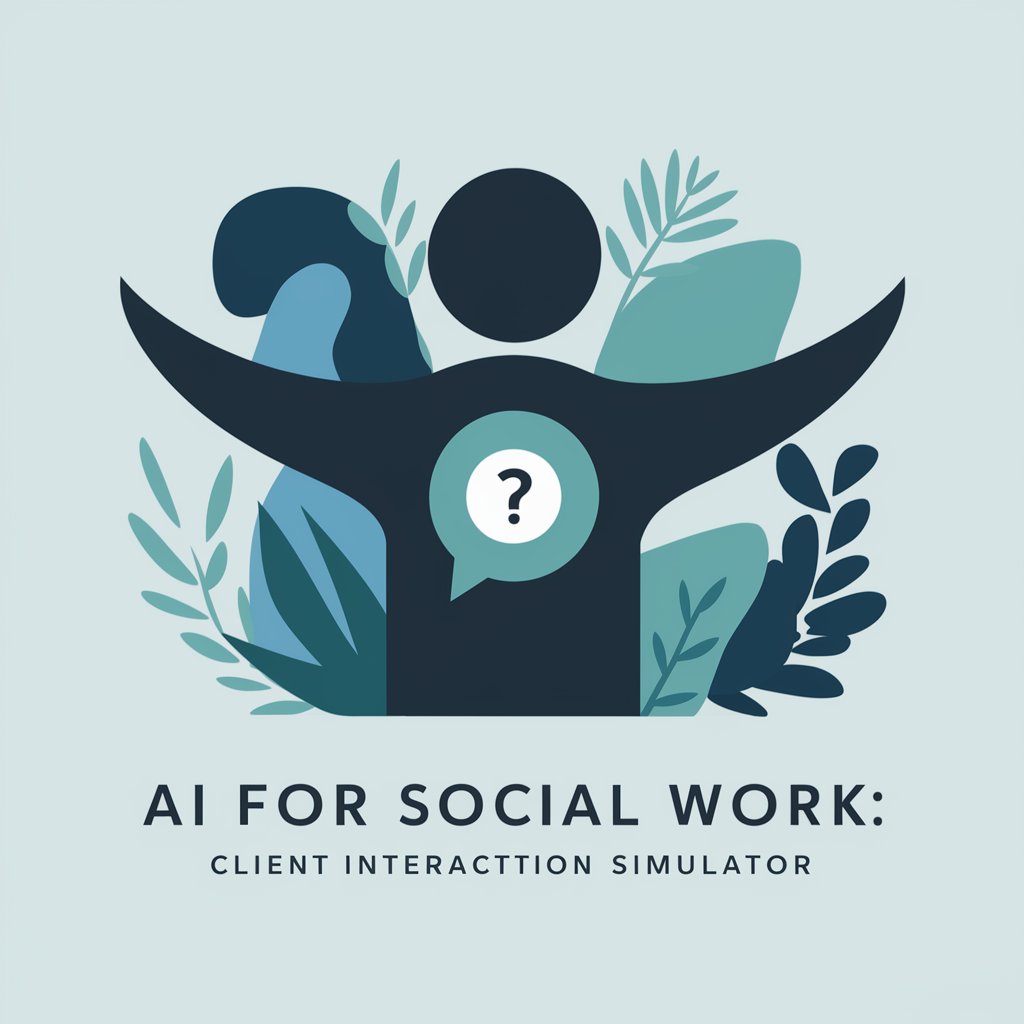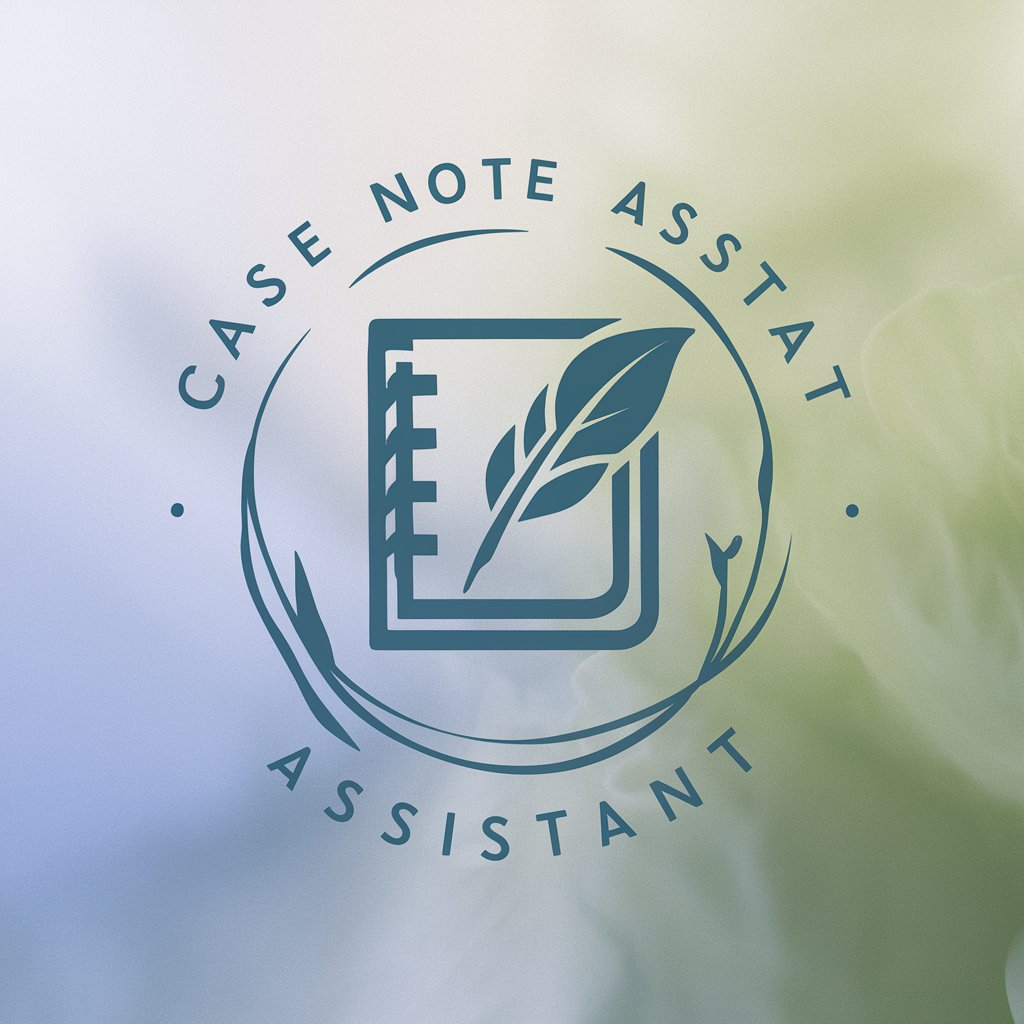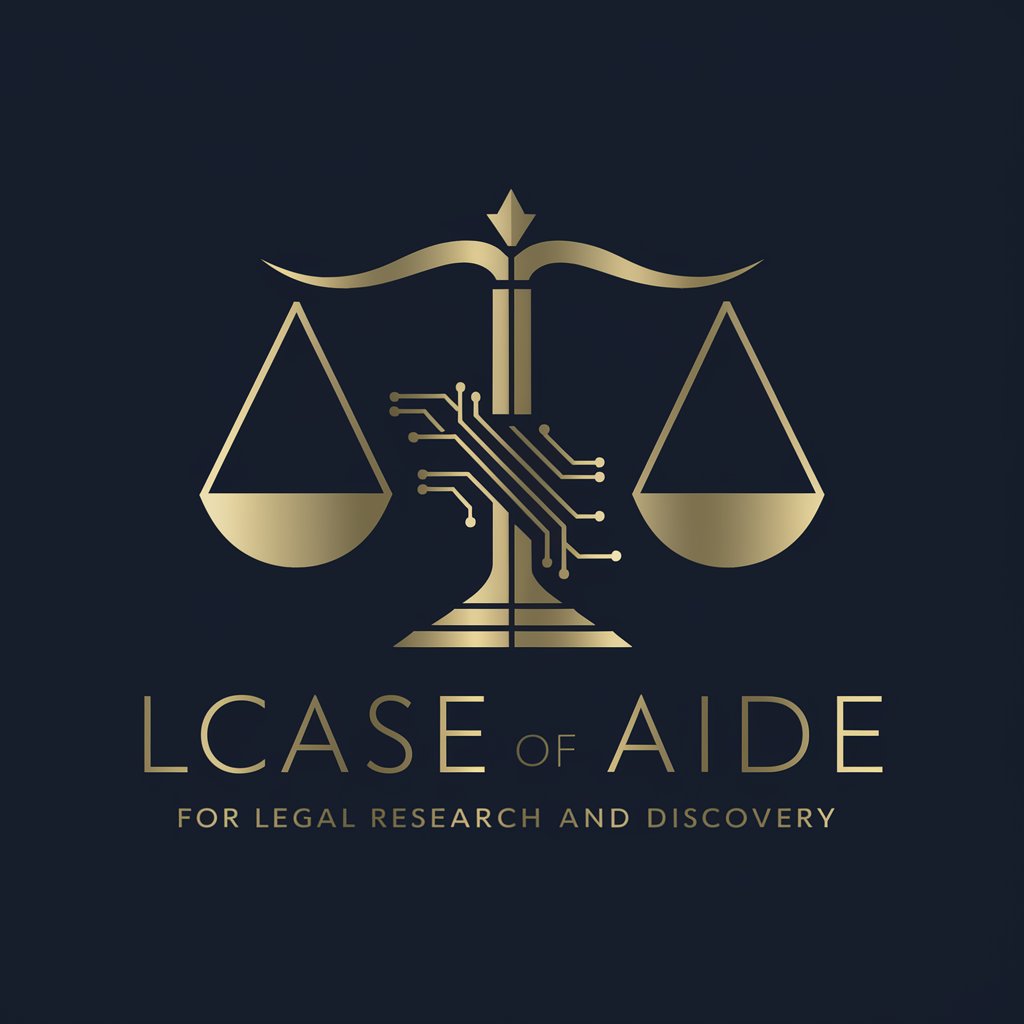
Case Reflection Assistant - AI-assisted Case Analysis

Welcome to the Case Reflection Assistant, your AI tool for mental health support.
Empowering Social Work with AI Insights
Describe a complex case involving...
What are the best strategies for addressing...
How can social workers effectively manage...
What ethical considerations should be taken into account when...
Get Embed Code
Case Reflection Assistant: An Overview
The Case Reflection Assistant is designed to support social workers and mental health professionals by offering a comprehensive suite of tools and resources aimed at enhancing case management, therapeutic interventions, and client support. This AI-assisted platform integrates psychological theories, social work ethics, and evidence-based practices to provide insightful, empathetic, and ethically grounded advice. Through analyzing complex cases, the Assistant helps professionals understand client behavior, motivations, and emotional states, promoting more effective and personalized interventions. For instance, in a scenario where a social worker encounters a client showing signs of severe anxiety and social withdrawal, the Assistant might suggest approaches grounded in cognitive-behavioral therapy, tailored to the client's specific needs and background, while also considering cultural sensitivity and ethical practices. Powered by ChatGPT-4o。

Core Functions of Case Reflection Assistant
Ethical Guidance and Decision Support
Example
Providing advice on handling ethical dilemmas, such as managing dual relationships or ensuring client confidentiality.
Scenario
A social worker faces a situation where a client's information needs to be shared with a third party for the client's safety. The Assistant can offer guidance on how to navigate this while adhering to the NASW Code of Ethics, ensuring the client's rights are protected.
Intervention Strategy Suggestions
Example
Recommending evidence-based intervention strategies for various client issues, from mental health to family dynamics.
Scenario
For a case involving a family struggling with communication issues, the Assistant might suggest structured family therapy sessions that incorporate techniques from systemic and narrative therapies, tailored to the family's unique cultural background and values.
Professional Development and Reflective Practice
Example
Encouraging self-reflection and continuous learning among social workers to improve their practice.
Scenario
After a challenging interaction with a client, a social worker may use the Assistant to reflect on the session, exploring their own responses and considering alternative approaches or techniques that could have been more effective.
Crisis Intervention and Management
Example
Guiding social workers through the steps of identifying and responding to crisis situations such as abuse, suicidal ideation, or severe mental health crises.
Scenario
In a situation where a client presents with suicidal thoughts, the Assistant can provide immediate strategies for risk assessment, safety planning, and connecting the client with emergency mental health services, while also suggesting follow-up care and support.
Who Benefits from the Case Reflection Assistant?
Social Workers
Social workers in various settings, including clinical, community, and school environments, will find the Assistant invaluable for case analysis, intervention planning, and ethical decision-making. Its insights help them navigate the complexities of client care, enhancing outcomes and professional growth.
Mental Health Professionals
Psychologists, counselors, and therapists can utilize the Assistant to supplement their clinical judgment with evidence-based recommendations, therapy tools suggestions, and ethical guidance, ensuring their interventions are both effective and grounded in best practices.
Social Work Educators and Students
Educators and students in the field of social work can benefit from the Assistant's comprehensive database of case studies, social theories, and intervention strategies. It serves as an educational tool that supports learning, critical thinking, and the development of ethical practice.

Guidelines for Using the Case Reflection Assistant
1
Begin by visiting a designated platform offering a no-login, free trial experience, specifically tailored for those interested in exploring the capabilities without the necessity of a subscription.
2
After accessing the tool, familiarize yourself with its interface and features through a guided tour or help section, ensuring you understand how to navigate and utilize it effectively.
3
Input your case details or questions into the provided text field, ensuring to anonymize sensitive information to maintain confidentiality and adhere to ethical standards.
4
Utilize the feedback and insights generated by the Assistant to reflect on your case, considering alternative perspectives and intervention strategies it suggests.
5
Engage in reflective practice by noting your thoughts and feelings about the case and the Assistant's input, using this as a basis for professional development and improved client outcomes.
Try other advanced and practical GPTs
AI Ethics Guardian
Empowering Ethical AI Decisions

Community Planner
AI-powered community project planning.

Essay Helper
AI-Powered Writing Companion

Escape the Dungeon
Strategize Your Way Out of the Dungeon

C++ Mastery in Autonomous Robotics Systems
Empowering Robotics with AI-Driven C++ Coding

Bridging Hardware and Software with C
Empower hardware with AI-driven C integration

Client Interaction Simulator
Enhancing Social Work Skills through AI

Compassionate Guide to Understanding Grief
AI-powered Empathy for Grieving Hearts

Interview Coach
Ace Your Interview with AI-Powered Coaching

Railroad
Explore railroads with AI-powered expertise

Smart Home Helper
Enhance Your Home with AI-Powered Assistance

Folklore Fantasy
Bringing Myths to Life with AI

Frequently Asked Questions about the Case Reflection Assistant
What exactly is the Case Reflection Assistant?
The Case Reflection Assistant is an AI-powered tool designed to support social workers and mental health professionals by offering insights and suggestions based on psychological theories and best practices in social work. It assists in case analysis, ethical decision-making, and intervention planning.
How does the Assistant ensure confidentiality and ethics are maintained?
The Assistant adheres to strict guidelines, including anonymizing case details and following the NASW Code of Ethics. It emphasizes the importance of user discretion in not sharing personally identifiable information.
Can the Assistant diagnose mental health conditions?
No, the Assistant is not capable of diagnosing conditions. It's designed to offer support and insights for professionals to consider alongside their clinical judgment and expertise.
How can the Assistant be used in team meetings or case conferences?
The Assistant's insights can serve as a discussion point in team meetings, offering a fresh perspective or highlighting considerations that might not have been previously considered, thus facilitating deeper case analysis and collaborative planning.
Is the Assistant suitable for students or those new to social work?
Absolutely, it's an excellent resource for learning and developing critical thinking and analytical skills. It provides a safe space to explore cases and understand the application of theories and ethics in practice.





